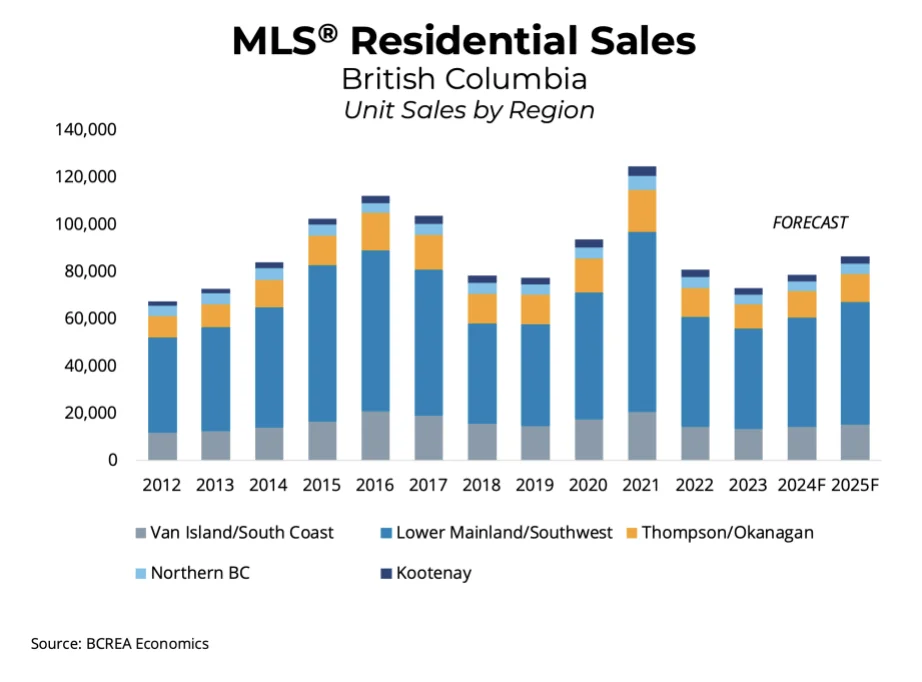Is It Safe to Live Near Power Lines? Understanding the Facts

Is It Safe to Live Near Power Lines? Understanding the Facts
If you're searching for a home in Greater Vancouver or anywhere in British Columbia, you've probably come across properties located near power lines. You may love a particular home, but the sight of power lines nearby might leave you questioning their impact. Do power lines affect property values? Are they linked to health risks like cancer? Is it truly safe to live near power lines? These are common concerns, and the answers may surprise you.
Understanding EMF and Power Lines
Power lines, like all electrical sources, emit electric and magnetic fields (EMFs). EMFs are a type of non-ionizing radiation, meaning they do not have enough energy to damage DNA directly. Everyday household items such as WiFi routers, appliances, and electrical wiring also emit EMFs, making them a part of daily life regardless of where you live.
A common misconception is that burying power lines eliminates EMF exposure, but this is not the case. Underground power lines of the same voltage and current produce the same level of EMFs as overhead lines. What truly reduces exposure is the distance from the source— the farther away, the lower the exposure.
Learn more about EMF exposure and safety
Are EMFs Harmful to Health?
Scientific research has examined the potential health effects of EMF exposure, and the findings are reassuring. High levels of EMFs (above 100 microteslas or uT) can stimulate nerves and muscles, but such levels are not found in residential areas of British Columbia.
Does Living Near Power Lines Cause Cancer?
There is no conclusive scientific evidence linking EMF exposure to cancer. EMFs do not have the ability to alter DNA or cells directly. While a 1979 study suggested a possible connection between childhood leukemia and EMFs, its methodology was later questioned, and subsequent research has not confirmed the findings. Both Health Canada and the World Health Organization (WHO) state that everyday exposure to low-frequency EMFs poses no known health risks.
Read Health Canada's stance on EMFs
While EMFs are classified as a "possible" carcinogen, they fall into the lowest risk category—alongside common items such as aloe vera and pickled vegetables.
How Close to Power Lines Is Considered Safe?
The WHO recommends limiting residential EMF exposure to 2,000 milligauss (mG). In comparison, the large lattice transmission towers found in British Columbia emit about 75mG directly beneath them—well below the recommended limit. Smaller distribution lines (such as 60kV Delta lines) emit approximately 13mG directly below, decreasing significantly with distance. For example:
-
At 10 meters away, EMF exposure drops to 5mG.
-
At 20 meters, it reduces further to 2mG.
If you are concerned about EMF levels in a home you’re considering, BC Hydro offers Magnetic Field measuring kits that allow you to check the exact exposure levels.
Check BC Hydro’s EMF safety resources
How Do Power Lines Affect Property Value?
The presence of power lines can influence the resale value of a home. While many factors determine a property's worth—such as location, size, age, and views—proximity to power lines can be a consideration for buyers.
The two main reasons for a potential decrease in value are:
-
Perceived Health Risks: Although no conclusive evidence supports major health risks, some buyers may still have concerns.
-
Aesthetic Impact: Power lines can affect a property's curb appeal, making it less visually appealing to some buyers.
On the upside, homes near power lines often sell for less than similar homes further away, meaning buyers can get a better deal. However, when it comes time to sell, future buyers will likely have the same considerations.
Explore real estate insights for buyers and sellers
Final Thoughts
If you're considering buying a home near power lines, understanding the facts can help you make an informed decision. While EMFs are a natural part of modern life, scientific research has not found significant health risks associated with living near power lines. As for property value, lower prices may be an advantage for buyers, but resale considerations should be factored in.
If you have concerns, consult with your Realtor® to assess the property and ensure it meets your needs and comfort level.
Categories
Recent Posts











